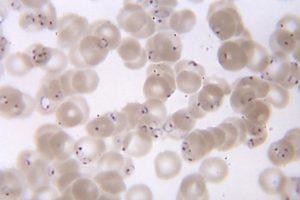Malaria disease is the result of infection with Plasmodium parasites. The infection is known to cause some long term adverse effects after the clearance of the parasite including bone loss. Products from the parasite have been found to remain in the bone marrow which causes these undesirable effects to the bone structure.
Malaria is still highly endemic in many tropical regions of the world. The malaria parasite mostly kills young children under the age of 5 and has been known to result in severe complications if it infects the brain. Even after the infection has been cleared, some individuals experience long-term problems due to the parasitic infection. Bone loss and growth retardation have been shown to be one of those long-term effects, however, it was not well understood how the parasite contributed to this.
Researchers, led by Cevayir Coban, investigated how malaria infection contributes to subsequent bone loss. They used chronic and acute mouse models of malaria infection to assess the effect on bone mass at 8, 14, 30 and 90 days post-infection. The team also looked at the influence of age on the loss of bone density by infecting mice at 3 weeks and 6 weeks of age with Plasmodium parasites.
The study showed that chronically infected mice lost more bone density than control and acutely infected mice. There was bone loss even after the infection was fully cleared. The researchers found that Plasmodium by-products accumulated in the bone marrow of the mice and this activated a MyD88-dependent immune response. Interestingly, treatment with a Vitamin D analog resulted in lower levels of inflammation and less bone loss after Plasmodium infection.
This study highlights the mechanism that results in bone loss after malaria infection. These data also suggest that treatment with Vitamin D may aid in the prevention of malaria-related bone loss.
Journal article: Lee et al.,2017. Plasmodium products persist in the bone marrow and promote chronic bone loss. Science Immunology
Article by Thandeka Moyo












